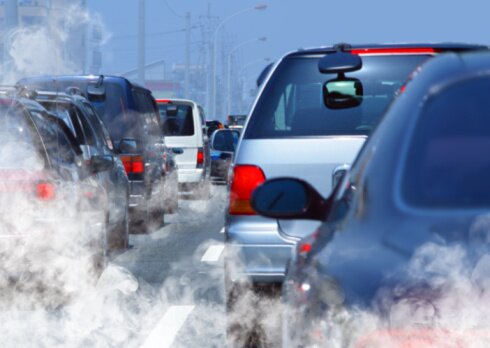Air Pollution Could Be A Greater Health-Risk Than Ebola And HIV
In the past two months, environmental pollution has been in the news more than a fair few times. First, the largest epidemiological study ever conducted in the developing world found that cities with the highest levels of fine particulate air pollution, known as PM2.5, also have higher death rates from heart and respiratory diseases.
Shortly afterwards, researchers at King’s College London confirmed that high levels of toxic air particles are associated with an increase in deaths from heart and lung disease in children and younger adults.
And now, the latest damning new research, published by the World Health Organisation (WHO), warns that pollution has become an even greater threat than Ebola and HIV, being responsible for one in four deaths among children aged under five.
Let’s clear the air…
The WHO report found that the most common causes of childhood mortality — diarrhoea, malaria and pneumonia — are being exacerbated by pollution. The report also claims that one quarter of deaths and diseases in 2012 could have been prevented by tackling pollution head-on.
Commenting on the results, Dr Margaret Chan, WHO Director-General, said: “A polluted environment is a deadly one – particularly for young children.”
The WHO report adds that exposure to polluted environments poses an enormous risk to pregnant women, and can significantly increase the chances of premature births. In addition, it also states that infants and preschool children exposed to pollution are also more likely to contract debilitating respiratory diseases, including pneumonia.
The fact is, air pollution in particular has become a growing health concern over the past decade. In 2016, the Royal Colleges of Physicians and of Paediatrics and Child Health said that air pollution in Britain’s cities is contributing to around 40,000 early deaths annually.
And the main culprit?
Poorly controlled diesel emissions.
Earlier this year, a report on air pollution commissioned by the Mayor of London, Sadiq Khan, found that tens of thousands of children in the capital are exposed to illegal levels of air pollution. As a result of these findings, the Mayor even warned the physically fit against exercising outside because of the “toxic air” in the city.
And if you think you won’t be affected by the health risks associated with air pollution because you don’t live in London, think again.
The WHO safety recommendation for small particulate matter (PM10) pollution is a maximum of 20?g/m3 as an annual mean. UK cities that exceed this limit include Port Talbot, Stanford-le-Hope, Glasgow, Scunthorpe, Leeds, Eastbourne, Nottingham, Southampton and Oxford.
In fact, air quality in the UK is so poor that in January this year the European Commission gave us two months to clean up our act after persistently breaching the EU’s legal air pollution limits. Air pollution has been linked to lung and heart disease, strokes, diabetes, kidney disease, premature births, and recently even brain disorders including dementia, mental health problems and reduced intelligence.
Fortunately, there is a very simple (and cost-effective!) way to help combat the negative effects of air pollution: omega-3 fatty acids, found in flaxseed, hemp and fish oil.
Recent research on mice, led by Dr Jing Kang, at Massachusetts General Hospital, found omega-3 fatty acids could help reduce harmful inflammation and oxidative stress caused by air pollution, by as much as 50 per cent.
Dr. Kang recommends taking two to four grams of omega-3 fatty acids per day to help reduce the negative effects of air pollution.
As always, we recommend you speak to a doctor skilled in natural medicine before adding a new supplement as part of your daily regimen.
Did you find this information useful?
Then why not get more expert health recommendations just like this delivered direct to your inbox?
"It is truly refreshing to read a newsletter on the topic of alternative medicine which is scientifically based and reviewed by professionals..." - Robert Sinott
We respect your privacy and will never share your details with anyone else.Disclaimer: Bear in mind the material contained in this article is provided for information purposes only. We are not addressing anyone’s personal situation. Please consult with your own physician before acting on any recommendations contained herein.
Sources:
Pollution is now a greater threat than Ebola and HIV, the World Health Organisation warns, published online 06.03.17, telegraph.co.uk
Eat This To Combat The Damaging Effects Of Air Pollution, published online 03.03.17, refinery29.uk
Protection against fine particle-induced pulmonary and systemic inflammation by omega-3 polyunsaturated fatty acids, dx.doi.org/10.1016/j.bbagen.2016.12.018
American Journal of Respiratory and Critical Care Medicine, published online, February 10, 2017
Defra National Statistics Release: Emissions of air pollutants in the UK, 1970 to 2015, published online. gov.uk
- Comments (0)
- Facebook Comments (0)












